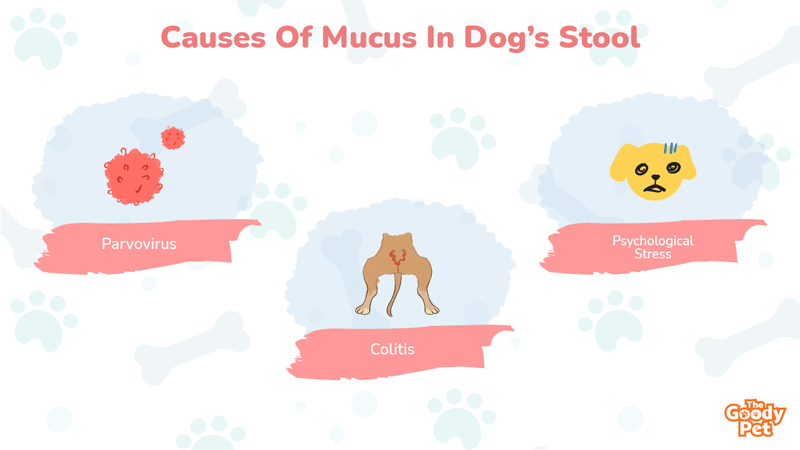Dog stool can be indicative of a variety of health problems in dogs. Mucus is often present in dog stool and can be a sign of illness. The presence of mucus should not be ignored, as it may be a sign of a serious medical condition.
There are several potential causes of mucus in dog stool, including dietary changes, intestinal parasites, and allergies. Dietary changes are often the simplest and most effective way to treat mucus in dog stool, but more serious conditions may require medication or other interventions.
Let’s discuss the causes of mucus in dog stool, how to treat it, and when to worry about it
22. Crohn’s Disease
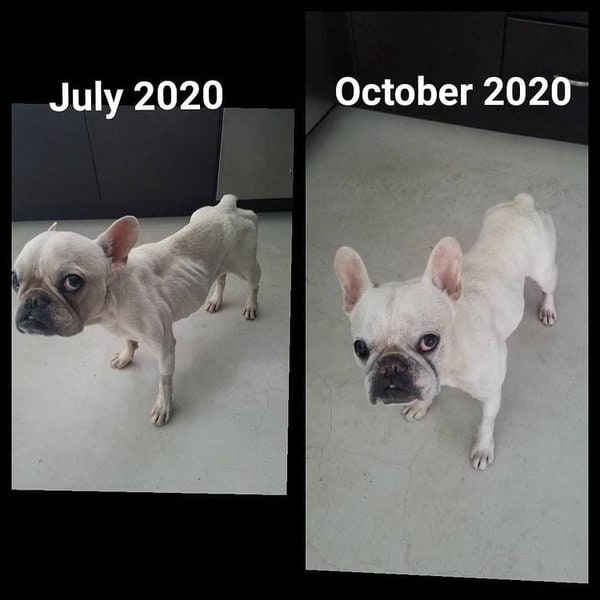
Crohn’s disease is one of the two parts of inflammatory bowel disease in dogs. The chronic irritation is associated with autoimmune dysfunction with the dog’s immune cells attacking those along the cut lining. This results in irritation with symptoms like diarrhea with a mucus coating. It could also cause vomiting and weight loss.
These symptoms are long term with flare-ups associated with things like psychological stress. Your dog may have to be on lifelong medication including steroids to minimize these flare-ups and the intensity of symptoms.
21. Irritable Bowel Syndrome
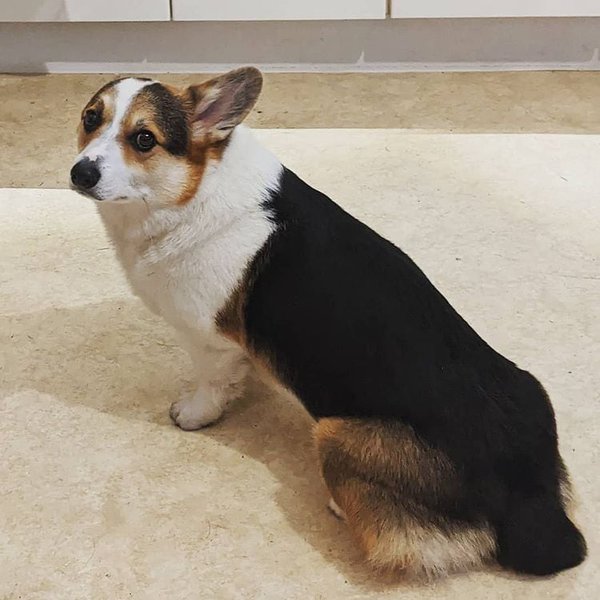
This is a condition where the lining along the large intestine gets spontaneously irritated by issues like change in diet, psychological stress, or even issues in complementary organs like the pancreas and liver.
As with colitis, irritable bowel syndrome causes the overproduction of mucus. Depending on the specific causes, the stool could either come out solid or loose.
The one main thing that sets it apart from inflammatory bowel diseases is the fact it is intermittent and the symptoms are less dramatic.
20. Unhealthy Diet

What your furry best buddy eats plays a major role in determining their overall gut health. It, therefore, comes as no surprise that an unhealthy diet could be the reason why your dog is having blood or mucus in its stool.
In this case, the biggest culprits are over-processed dog food options especially those with a lot of chemical additives. These often irritate the digestive tract and cause increased production of mucus.
19. Food Intolerance
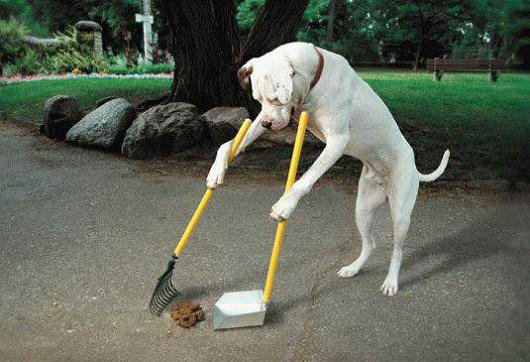
While we are still on the topic of food, another common cause of the appearance of mucus in dog poop is food intolerance. These allergic reactions are often accompanied by diarrhea that is thickly coated with mucus.
What is probably one of the most problematic in this case is gluten intolerance. This causes a condition known as celiac disease. If you notice the mucus and any other symptoms in the gut and skin, you should consider switching out components in your dog’s diet like grains.
18. Ingestion Of Foreign Objects
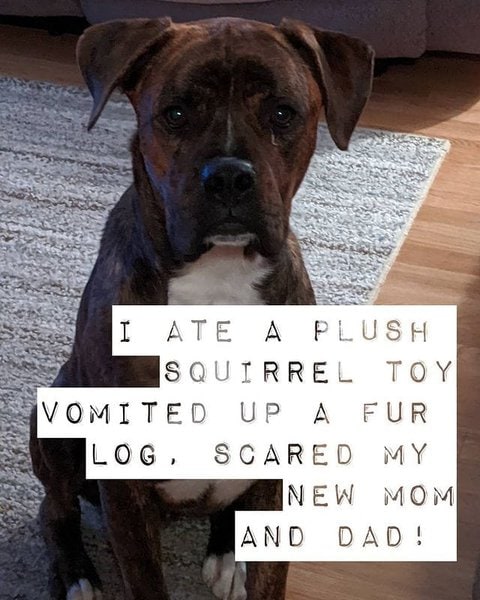
Another reason why your dog’s poop may look like jelly with blood is because of the ingestion of foreign objects. This is particularly common with dogs that tend to rummage through trash for something to snack on.
As the object makes its way along the track, it may be recognized as potentially hostile in which case the gut mounts a response including increased production of mucus. With sharp or abrasive objects, there may also be an injury to the gut lining with blood in the stool.
17. Anal Abscesses
It is not uncommon to confuse pus for mucus given their similar slimy texture. As a result, anal abscesses should be ruled out as you try to figure out what is causing your dog’s unusual poop appearance.
Anal abscesses are often complications of infections in the area that may either be spontaneous or following issues like untreated anal fissures. Whatever the case, they are relatively easy to treat and you should have your dog pooping normally again in no time.
16. Gastrointestinal Fungal Infection
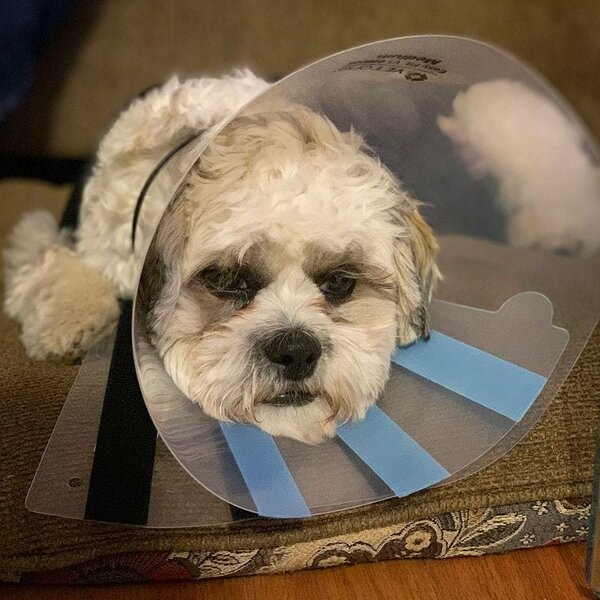
Fungal infections of the gut are relatively rare. However, something like candidiasis could develop as a result of an imbalance in the levels of normal gut bacteria that often keep the fungus in check.
This could occur anywhere along the gut but is particularly common in the esophagus and colon segments. This determines the amount of mucus your dog’s poop may have with colon infections being the most dramatic in terms of presentation.
15. Side Effect Of Medications
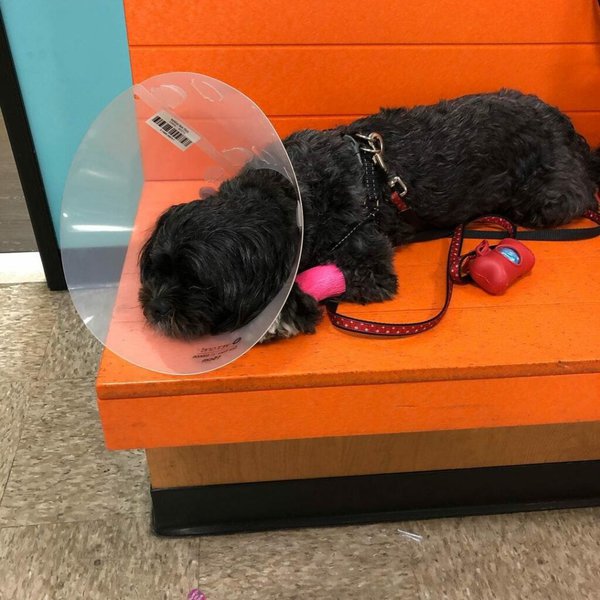
Drug therapy could also be why you are noticing increased amounts of mucus coating in your furry best friend’s poop. The causes here vary from drug to drug.
In the case of chemotherapy medication, the increased production is a result of irritation of the gut lining by the highly toxic components and byproducts of the drugs.
It is also very common with medication used to treat constipation in dogs. This is the case with bulk increasing drugs like Metamucil which in the process of drawing water into the stool to soften it leaves it looking like jelly.
14. Poison Ingestion
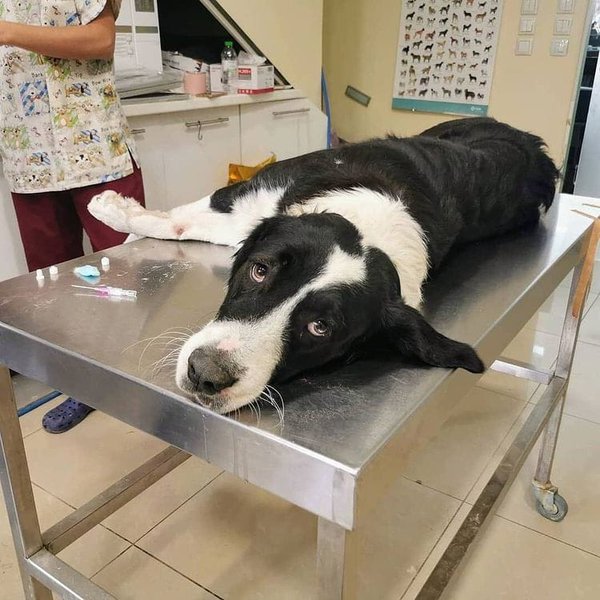
Your dog may also experience changes in stool appearance and consistency with increased mucus production in cases of poison ingestion. It could be anything from poisoned bug traps to toxic substances that they decided to turn into chew toys.
It also happens a lot with ingestion of foods that are known to be toxic to dogs. This includes chocolate, raisins, garlic, avocados, and the list goes on. These foods should be avoided at all costs.
13. Whipworm Infestation
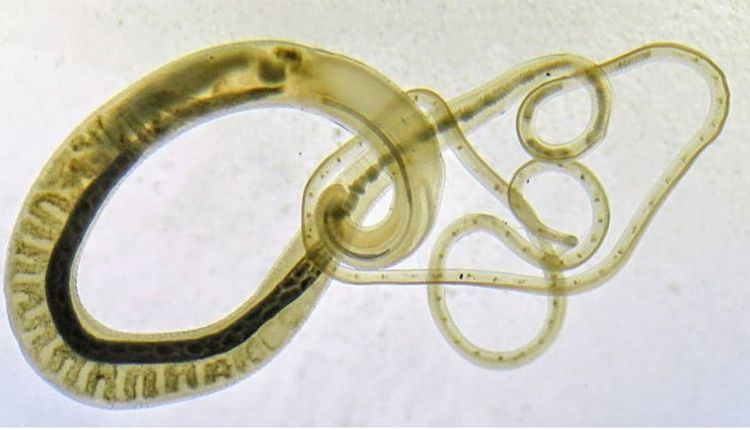
Parasite infestations are also a major cause of gut irritation and, as a result, increased production of mucus from the lining. One of the most problematic in this case is whipworm. They are common in dogs that have a habit of eating anything they can find as the infective eggs hide in soil and trash.
The worms typically reside in the cecum where the small and large gut meet causing intense irritation and mucus overproduction.
12. Hookworm Infestation
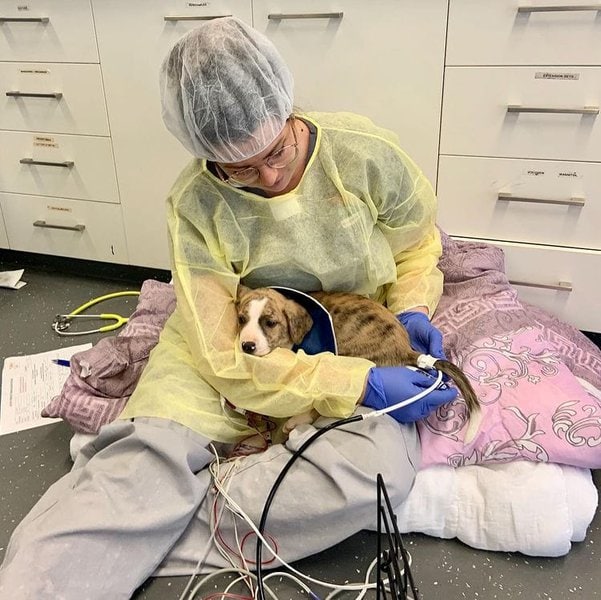
Hookworms are other very common dog worms that may be responsible for the mucus and blood coating on the pooch’s poop. They use their specially modified mouthparts to hook onto the gut wall from which they feed and wreak their havoc.
While they may be potentially devastating if not dealt with, hookworms are relatively easy to treat. Just get your vet involved and start on a regular deworming schedule afterward to prevent repeat infestation.
11. Amebiasis
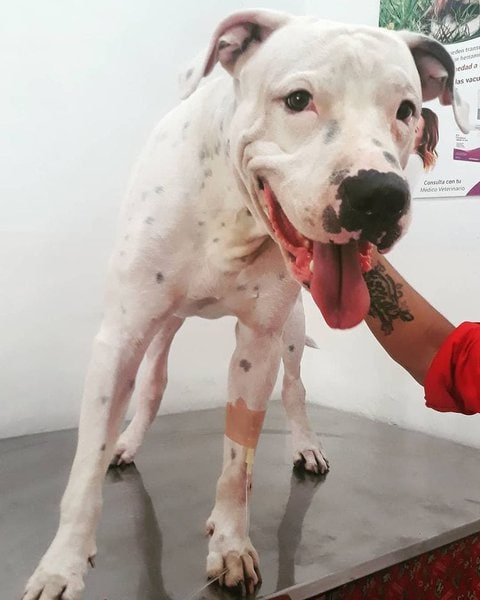
Amebiasis is a relatively rare protozoal condition in dogs, but it is one of the most devastating causes of mucus in stool. It is caused by little single-celled organisms known as ameba which can be acquired through contaminated food or water.
For the most part, it is asymptomatic with subtle symptoms like reduced appetite. However, it can be very dramatic when symptomatic with signs like bloody diarrhea with heavy mucus coating due to chronic gut irritation.
10. Tapeworm Infestation
While we are still on the topic of parasitic infections in the gut, it would be impossible to complete a list of causes of mucus in stool without mentioning tapeworms. These long, flat parasites cause all sorts of issues from obstruction to chronic irritation which causes the mucus and blood in the dog’s poop.
The tapeworms may also affect other systems if their segments enter the bloodstream which makes treatment a lot more complicated. For this reason, regular deworming and watching what your dog eats are crucial.
9. Benign Gut Tumors
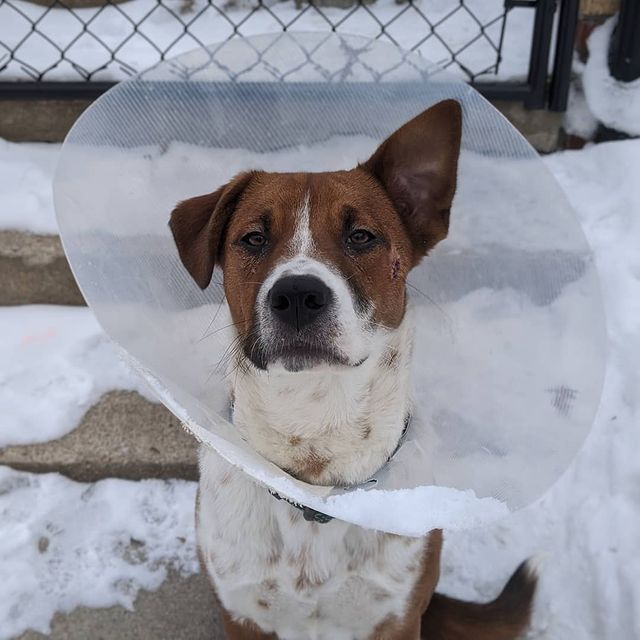
Benign tumors in the gut are unusual overgrowths of cells that are not invasive. Though they do not spread from their point of focus, they tend to be very problematic.
One of the most common types of benign tumors in a dog’s gut is intestinal polyps. They affect the gut in the same way as infections and other causes of increased mucus which is by causing irritation.
In these cases, you may notice that the mucus coating is preceded by periods of constipation as the polyps often cause obstruction.
8. Cancerous Gut Tumors
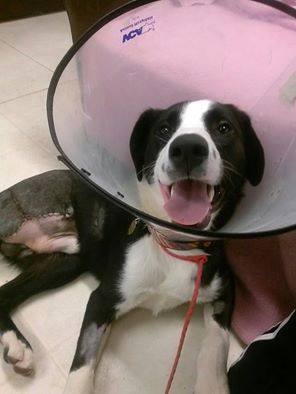
Malignant tumors on the other hand are a major problem when it comes to causes of mucus and blood in dog stool. They may appear anywhere in the gut from the esophagus and stomach to the intestines.
In this case, colon and rectal tumors are the main culprits especially those that involve the over-proliferation of mucus-producing cells in the gut.
With cancerous tumors, the best chance for the dog’s survival is early detection and treatment in which case regular vet checkups come in very handy.
7. Small Intestinal Bacterial Overgrowth (SIBO)
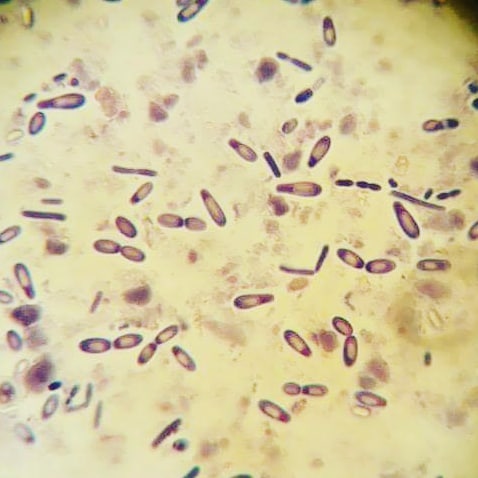
Good gut bacteria are very important for maintaining health and promoting optimal functionality in the digestive tract. However, if they become too much they may end up causing more harm than good as is the case with small intestinal bacterial overgrowth in dogs.
This is often associated with other conditions like liver and pancreatic issues in which case the dog is not able to properly digest food. The bacteria, therefore, have a chance to overpopulate with the increased supply of food resulting in issues like increased flatulence, loose stools, and mucous coating of poop.
6. Clostridial Enterotoxicosis
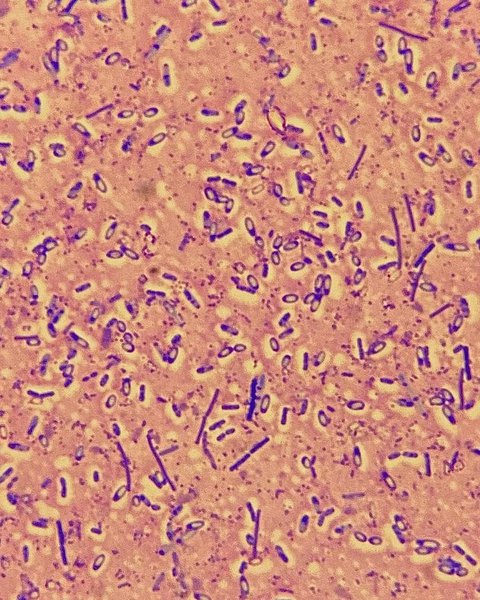
This condition is caused by Clostridium perfringens. These may exist as normal bacteria in the gut or through contamination of dog food, especially with raw meat and vegetable diets. They cause intense gut irritation and increased production of mucus as a result.
Something unique about the mucus coating in these cases is that it is often noticeably shiny. It could also be associated with different levels of blood coating from light spotting to full-on blood soaking depending on the severity of the infection.
5. Colitis
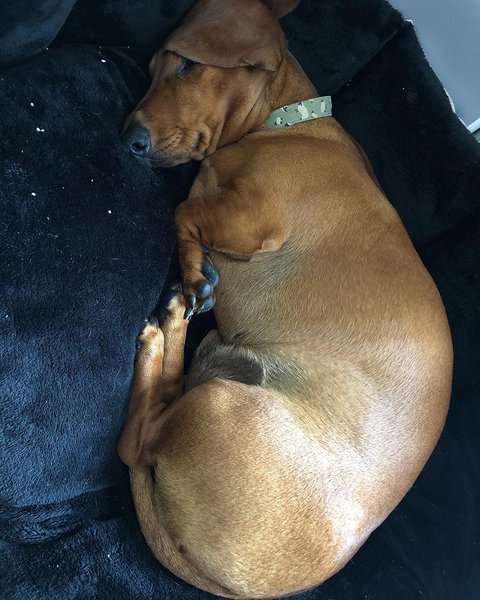
Colitis refers to the inflammation of the lining of the colon. So far, we have mentioned a variety of secondary causes from infections and worm infestation to intoxication. However, the inflammation could be completely spontaneous as is the case with ulcerative colitis from inflammatory bowel disease.
In this case, it is hard to pinpoint a specific cause of the symptoms. It is often associated with abdominal tenderness, reduced appetite, and drastic drops in the dog’s energy levels. In these cases, all you can do is feed your pooch bland and healthy foods and wait it out.
4. Parvovirus
Parvovirus is one of the most common infections affecting dogs’ intestinal tracts. It is named after the virus that causes inflammation along the dog’s intestinal tract.
In addition to the dog poop mucus casing, parvovirus causes bloody diarrhea, vomiting, and extreme lethargy. If not treated, it could be fatal.
The worst part is that it is incredibly contagious. As a result, you should keep affected dogs away from healthy ones to avoid disastrous results. Vaccinations also do a lot to help with prevention.
3. Giardia
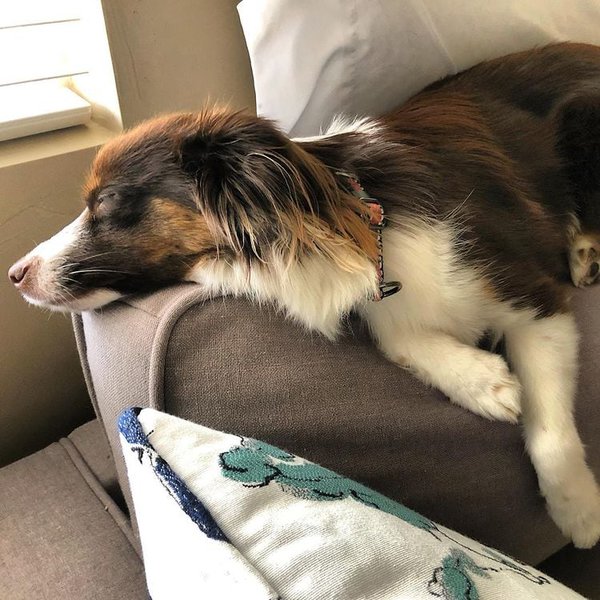
Giardia is another highly contagious and potentially deadly cause of blood and mucus in dog poop. The condition is often asymptomatic at first but then suddenly manifests with dramatic symptoms including intense mucus-coated diarrhea, vomiting, and noticeable weight loss. The stool may also appear fatty which is a result of poor digestion.
For the most part, the giardia will go away on its own and all you have to do is keep the pooch adequately hydrated. However, if the symptoms persist past 3 to 4 days, you should consult your vet.
2. Psychological Stress
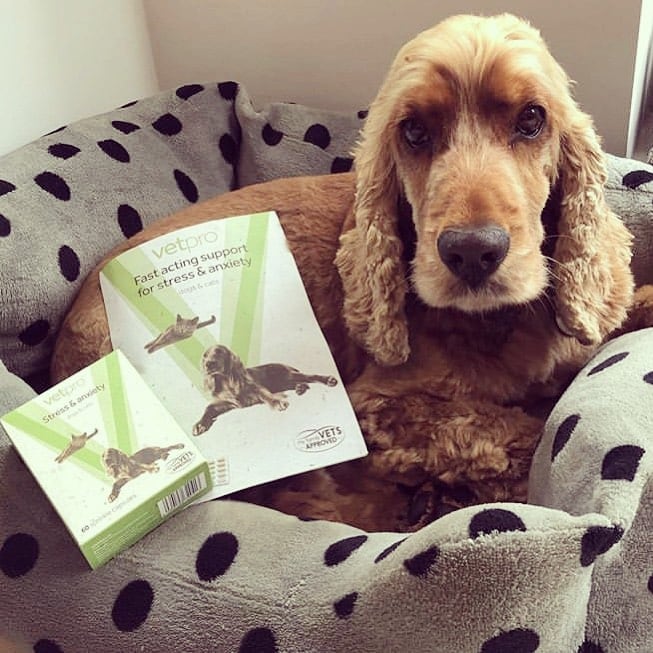
Psychological stress has numerous gut consequences in dogs from constipation to indigestion. It could also cause a condition known as stress colitis. Colitis is the inflammation of the lining of the colon which often causes overproduction of mucus which in turn coats the dog’s poop.
In this case, you may observe some behavioral changes including aggression or increased reclusion, changes in energy levels, and altered appetite just to name a few potential signs.
1. It Could Be Normal
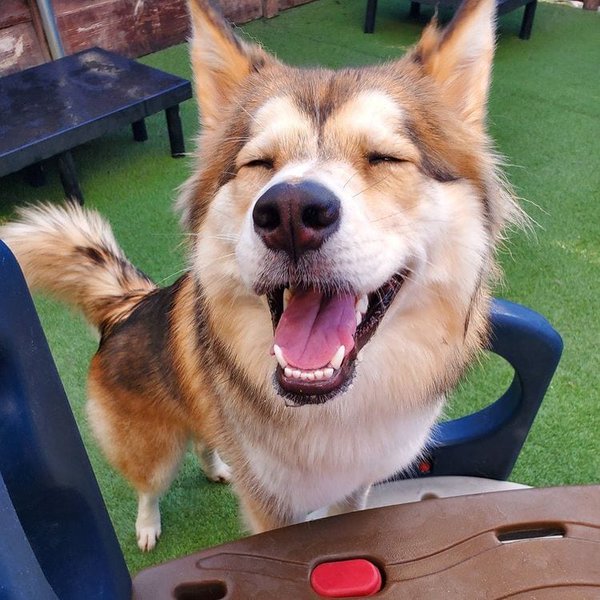
Mucus in poop does not always mean something when it comes to dog health. In some cases, it is a completely normal part of gut functioning. This is because the intestinal tract is naturally lined with mucus. Naturally, there is a possibility of there being a coating of the same on the poop.
It could also be a result of probiotic consumption in which case the gut’s good bacteria are just doing their job of keeping the gut lubricated.
Related Questions
When Should I Be Concerned About Mucus In My Dog’s Stool?
A little mucus in your dog’s poop every now and then is not something to worry about. However, if the coating is thick and the frequency of appearance of mucus in dog stool increases, you should definitely be concerned. It is also crucial to keep an eye out for other signs including blood in stool, changes in appetite, diarrhea, or constipation.
Can Probiotics Cause Mucus In Stool?
Probiotics can cause mucus in dog stool in which case you have nothing to worry about. This is a part of their massive efforts to promote gut health which include increasing the production of mucus along the gut to promote peristalsis through lubrication. In these cases, there may not be any other worrying signs.
Can Metamucil Cause Mucus In Stool?
Metamucil is a soluble fiber-based drug that is often given to dogs as a way to eliminate constipation. It works by increasing the bulk and water levels in the stool for easier passage along the gut. For this reason, Metamucil may cause mucus in stool by giving it a jelly-like appearance.

